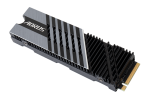9. IOMeter Random 4K
Risultati
| SSD [New] |
| | |
| Â Random Read 4kB (QD 3) | Random Write 4kB (QD 3) |
| SSD [New] |
| | |
| Random Read 4kB (QD 32) | Random Write 4kB (QD 32) |
| Â SSD [Used] |
| | |
| Random Read 4kB (QD 3) | Random Write 4kB (QD 3) |
| SSD [Used] |
| | |
| Random Read 4kB (QD 32) | Random Write 4kB (QD 32) |
Sintesi
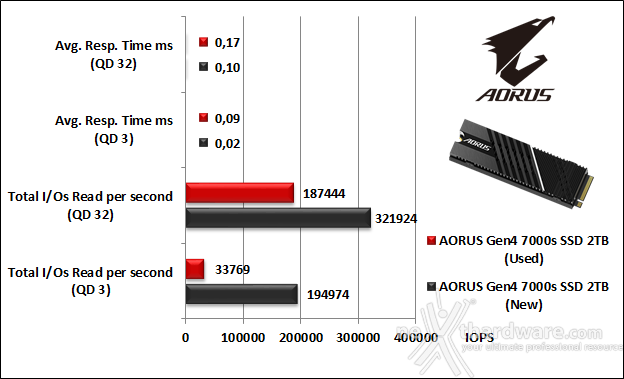
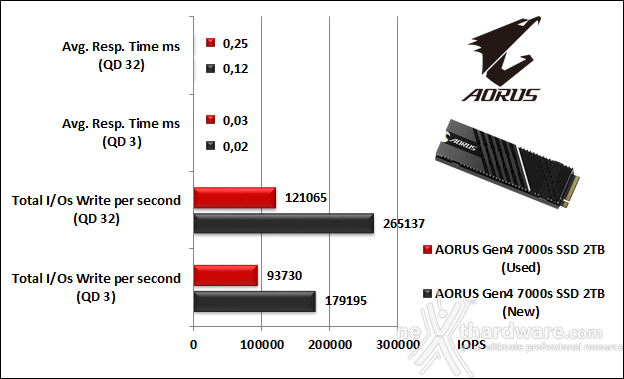
Nei due test di lettura ad accesso casuale su file da 4kB, l'unità in prova mostra di prediligere quei contesti dove i carichi di lavoro sono piuttosto consistenti, evidenziando prestazioni notevolmente superiori nel test QD 32.
Le stesse, pur essendo di ottimo livello, sono comunque nettamente inferiori rispetto al dato di targa che, ricordiamo, essere pari a 650.000 IOPS.
Anche in scrittura, seppure in misura minore, l'AORUS Gen4 7000s 2TB sembra prediligere carichi più impegnativi e, anche in questo frangente, le prestazioni restituite sono ben distanti dai 700.000 IOPS dichiarati.
Nel passaggio dalla condizione di drive vergine a quella di massima usura abbiamo registrato dei cali variabili tra il 41% e l'83% in lettura e tra il 48% ed il 54% in scrittura.
Comparative
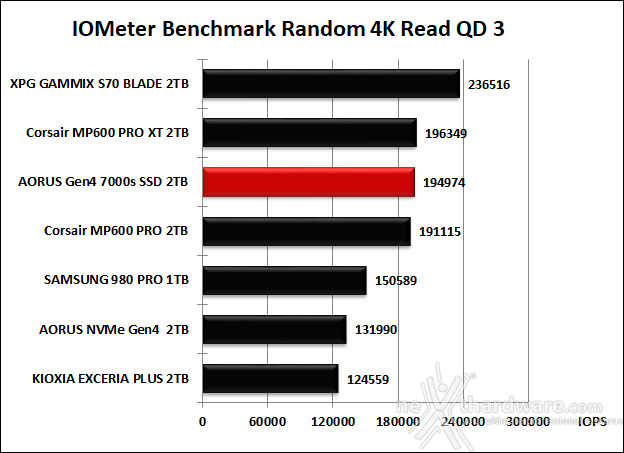
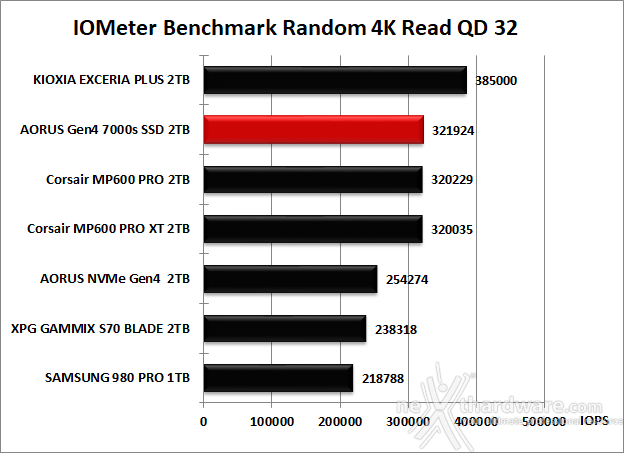
Nelle due comparative in lettura l'unità in prova ottiene un secondo posto nel test più impegnativo ed un terzo posto in QD 3.
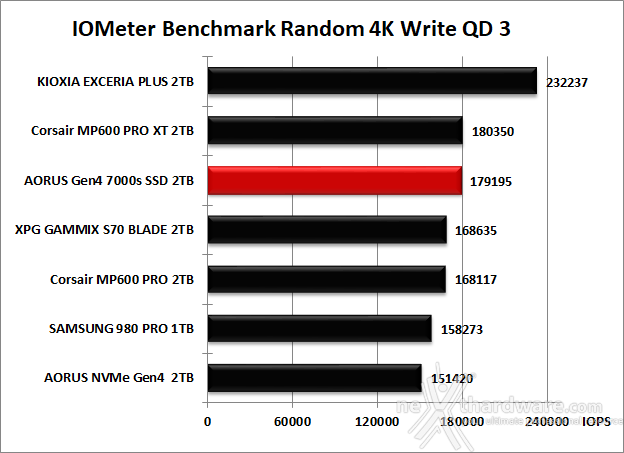
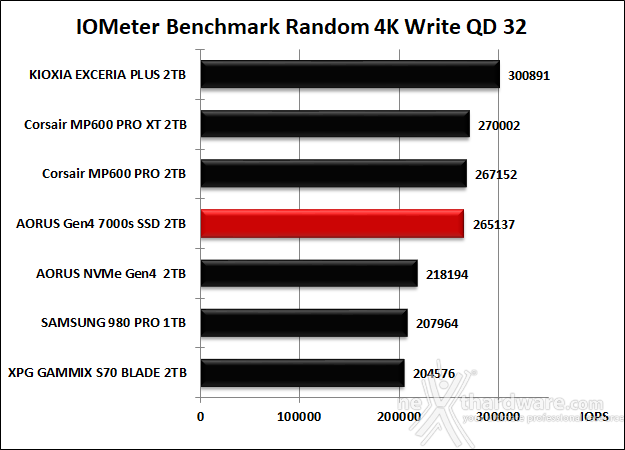
Meno brillante la performance in scrittura, dove l'AORUS Gen4 7000s 2TB ottiene un terzo posto nel test QD 3 ed un quarto in QD 32.

